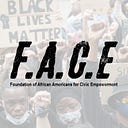Q&A: A Black Community Leader’s Story with Fort Collins
The Black experience in the city of Fort Collins has been one filled with tense standoffs and promises left unmet.
With a history left mostly covered up and a community disconnected, many in the Black community here in Fort Collins have been left wondering why their culture has been ignored for so long.
Now, Jamal Skinner, the executive director of the Cultural Enrichment Center of Fort Collins has shed some of his insight on the state of the city.
In a sit-down interview, Skinner speaks about the experience of the Black citizens of Fort Collins and the treatment the city has subjected them to.
Can you tell me about the Black experience here in Fort Collins?
“My experience here has been similar to many other people that I’ve had conversations with. It has been met with the typical micro aggressions that people experience daily being black African-American, from the simple having a $20 bill checked when you’re going to 7-Eleven money, to blatant racism. People love to use the N-word when you’re walking down the street as they drive by at 40 miles an hour. As well as within the school system as a parent.”
Can you talk about some of those students' experiences?
“Absolutely, I can speak for my son. I’ll speak forhim as his father. He has numerous experiences going back to second and third grade with him being called the N-word, and not much being done in any sort of discipline for the white youth who addressed him that way. He’s tried to figure out ways to navigate through it as well as other students. I can tell you every day, and I mean literally every day, there is another story. These experiences begin to weigh on them.”
What about the support systems and community here?
“Moving from New York, what I noticed in Fort Collins is that there is no Black neighborhood. I’ve never been to a city in my life where there doesn’t exist a Black neighborhood. I think that maybe some of the reasoning why this black community we find here in Fort Collins seems to be disconnected from another is because we’re not in a central location where we can knock on each other's door, hold each other accountable, and commune a lot easier.”
What do you believe Fort Collins’ role was in the treatment of Black people here?
“I think historically the treatment of Black people in general across the country was negative, but Fort Collins, historically, but not fully on paper was a sundown town. So a lot of that sentiment and idea that this is not a space for necessarily Black people came from there. This community is growing in small numbers and increasing, and it becomes confusing for those who have not been around a lot of Black people. So there are assumptions made about what Black people are, and what we bring to the community. I don’t believe Fort Collins believes that the Black people here have any value or provide any value to this community.”
As a Black leader here in the Cultural Enrichment Center and in the city of Fort Collins, what do you believe can be done?
“Here’s two things. I think we had the unfortunate, but wonderful experience of the pandemic that allowed things to slow down enough for those who were maybe disconnected to connect, and the other, was the unfortunate murder of George Floyd. These began to galvanize some who had never been involved to become organized for community connection. I’m talking about the Black community as well as those who may have just been sleeping and became woke. If that’s what it is, some people may have just been sleepwalking and are now beginning to wake up. This realization led to more community involvement and our Juneteenth celebrations. What we need more of is that. I think we need more spaces where we can communicate together and again that’s why I’m saying that not having an actual neighborhood sometimes makes it difficult.”
Is there anything you would like to add about Fort Collins's part in fixing all ofthis historically?
“Places like Colorado existed for Black Settlers escaping the South in that it was a little less bad than the conditions of the Jim Crow reconstruction era of the United States. Fort Collins is no different as a town with the possibility of citizens being under the yoke of blatant racism. However, lynchings happened in Kansas, and Lynchings happened out here as well. So in that past, it shows that most things are a continuum. So obviously we know the degradation and oppression of Black people is nothing new. What I hope to see is a concerted effort that I, as well as others [leaders in the city]are doing the best we can to connect to the Black community and find ways to uplift a Black community here.
Any other thoughts?
“To Fort Collins, it is what we call a choice city. If we are going to make it the space that Fort Collins claims that it is, it must face itself in the mirror and the treatment of the Black community here. The history of the Black community here cannot be swept under the rug. It cannot be treated as something that is secondary. This would require the entire city to face the major issues that Black people have here that are based on blatant racism and white supremacy. Fort Collins is not exempt from any of it. They have a real challenge ahead of themselves.”
